- Home
- Todd Strasser
Summer of '69 Page 24
Summer of '69 Read online
Page 24
Promise you won’t say nothing to my parents. Swear it, Loogs. Think of this as my dying wish. It won’t make no difference. We are in the A Shau Valley now. Know that Doors song where he says no one gets out of here alive? This is the place. We are so deep in the jungle and away from the supply chain that I wonder if you will ever get this letter.
I am waiting for the right time. Maybe the next firefight. There are ways to do it in battle so you look like a hero. I want my family to be proud of me. So I’ll get some kind of posthumous medal they can hang on the wall.
I wish I’d listened to you, man. Now it’s too late. I can’t take this no more.
Your friend,
Chris
Jesus. Jesus.JESUS!
My hands tremble as I set the letter down. What should I do? What the fuck should I do? Tell his parents? What would they be able to do? And based on what he said about his family and their attitude toward war, wouldn’t I be betraying him? He mailed this letter almost three weeks ago. What if — aw, Christ, my stomach wants to heave. What if he’s already done it? If I tell his parents about the letter, they’ll know he didn’t die a hero.
Okay, okay, wait. Can I call the army directly?
And say what?
Hi. There’s a friend of mine way out in the jungle. Three weeks ago, he sent me a letter saying he wanted to kill himself.
If Chris was really going to do it, wouldn’t he have done it by now?
It’s nearly seven o’clock. I’m supposed to go with Arno and Tinsley to the festival in a few hours. But I can’t. Not knowing this.
Fuck!
The Dodsons’ is one of a dozen small brick houses nestled close together along a block lined with parked cars. In the fading evening light, a balding man is pushing a hand mower in neat lines across the small front lawn. He has a potbelly and is wearing a sleeveless T-shirt with patches of graying hair poking out along the neckline. A shrine to the Madonna stands beside the porch steps. An American flag hangs from the eave.
“Mr. Dodson?” I hold my breath. Does Chris’s father look like a man whose son has recently died? It’s not the kind of thing I have any experience judging. I glance at the front of the house, not exactly sure what I’m looking for other than some sort of indication one way or the other.
Chris’s father stops pushing the mower. His eyes go to the motorcycle helmet under my arm. “Yeah?”
“My name’s Lucas. I’m a friend of Chris’s.”
“Oh, yeah?” His narrowing eyes and pronounced scowl plainly state that until this moment he didn’t know Chris had any long-haired motorcycle-riding degenerate hippie friends.
“From work. I, um, well, ever since he went over to Vietnam, we’ve been exchanging letters. Only, it’s been a while since I’ve heard from him.”
Mr. Dodson turns his head so he’s looking at me mostly with his right eye. “You know Chris from that junk-mail place?” he asks skeptically.
“That’s right.”
Mr. Dodson’s eyes dart around as if he’s nervous one of his neighbors will see him talking to me. “You wanna come in?” he asks.
“Uh . . . okay, thanks.”
On the small front porch, Mr. Dodson takes off his shoes and leaves them by the door, so I do the same with my boots. The doors and windows are open, and an attic exhaust fan whirs loudly overhead. The house is dark inside and filled with the mixed aromas of stale cigarettes and a recently finished meal. The sound of running water and the clinks and clanks of dishes and pots being washed come from the kitchen.
“Mother, we got company,” Mr. Dodson calls.
A short woman comes out of the kitchen. She’s wearing an apron and drying her hands with a dish towel. She’s probably around my mother’s age, definitely not old enough to be Mr. Dodson’s mother. I assume she’s his wife (though I’ve never heard of married people addressing each other that way before). Her face is flushed from the heat. She frowns when she sees me.
“He says he’s a friend of Chris’s from the junk-mail place,” Mr. Dodson says with a hint of doubt in his voice.
Mrs. Dodson blinks. Her eyebrows rise. In a lifelong smoker’s raspy voice she says, “The owner’s son?”
“Yes, ma’am.”
Now it’s Mr. Dodson’s turn to frown.
“Please, have a seat,” Mrs. Dodson says.
“Thanks.” There’s a small couch with a plastic cover that squeaks when I sit. A fairly large Jesus on a cross hangs over the fireplace. In the center of the mantel stands a ceramic statue of the Madonna and three framed photos. One frame has a faded black-and-white photo of a soldier and a couple of medals inside. (It could be Mr. Dodson; I’d need to take a closer look.) The other photos are in color, of young soldiers in full dress uniform. Their white army service caps sit high on their heads. My thoughts go straight back to the pictures in Life magazine. One of the soldiers on the mantel is Chris, looking too young to be in such a getup. The other photo’s of someone else. At either end of the mantel, a white candle burns. I feel my breath catch. Oh, shit! Are they memorial candles?
“Can I get you something?” Mrs. Dodson asks. “We just finished dinner, but . . . a piece of pie?”
I haven’t had dinner, but right now I have no appetite. Mrs. Dodson isn’t acting like someone who’s in mourning. So that’s a good sign, right? “Something to drink would be great, thanks.”
“Maybe some iced tea, Mother,” Mr. Dodson says, sitting in a plastic-covered chair across from me. Mrs. Dodson goes back into the kitchen. Mr. Dodson leans toward me and in a low voice says, “She only puts these on in the summer. Sweat and dirt, you know?”
I nod.
“So, the owner’s son, huh? How long you say you known Chris?” He’s using the present tense — but is it because Chris is alive or because they haven’t yet heard otherwise?
“About three years.” And I have to ask: “Have you heard from him lately? How’s he doing?”
“We just spoke to him this morning,” Mrs. Dodson says cheerfully, coming in with a tray. She pours iced tea into a glass with a gold rim and pink roses painted on it, and hands it to me. “It was night there. He’s behind the lines at a base near Long Binh.”
When a laugh of relief bursts involuntarily out of my chest, I realize how tense I must have been. The muscles in my neck and shoulders start to relax. Meanwhile, both Dodsons scowl. But Chris is alive and — “Wait. You said behind the lines? He got transferred?”
Mr. Dodson’s scowl deepens. “It’s called reassignment. When you enlist, those recruiters, they want to know what jobs you’ve had. In case you’re already trained to do something they need. The only job Chris’s ever had was at that junk-mail place. So he wrote down that he had experience with the mail. He got reassigned to the military postal service. My soldier son is a mail clerk.”
Mr. Dodson doesn’t seem pleased about that. It’s hard to understand how any father could want his son to be on the front lines.
“He sounded very happy,” says Mrs. Dodson, glancing at her husband. Mr. Dodson gives her a hard look in return.
The front door bangs, and a guy wearing high-tops, basketball shorts, and a jersey takes the stairs two steps at a time without even looking at us. It must be Chris’s brother, the one he had to share a room with until he went to Nam.
“I’m glad he’s okay.” I take a long, cool sip. It’s real tea, not a mix.
“So, uh, what can we do for you, uh . . . ?” Mr. Dodson asks.
“Lucas. Nothing . . . I was . . . just getting worried.”
“That’s why you came all the way over here? To find out if Chris is okay?” Mr. Dodson sits back in the chair and presses his fingertips together thoughtfully. “No offense or nothing, but you ain’t got a phone?”
“Eddie,” Mrs. Dodson says sharply. Then to me: “It’s very nice of you to be concerned. I remember Chris telling me about you. He likes you very much.”
I’m not sure a hush falling over a room has ever been more palpable. Mr. Dodson gl
owers. Things may be getting awkward. Mrs. Dodson goes back to the kitchen, leaving her husband and me alone.
Mr. Dodson takes a long silent sip of tea, then hunches forward and runs a fingertip over the condensation on the glass. Finally, he looks up at me. “Your father serve, Lucas?”
“He commanded an LST in the Pacific during World War Two.”
“What about his father?”
“We don’t know much about his father.”
“Your mother’s father?”
“Also in the navy. But between the wars. He was a ship’s cook.”
“So, what do they think about you bein’ against this war?”
No need to ask him how he knows this. In his mind I probably look like a poster boy for the antiwar movement. “My mother’s father’s passed away. My father’s against the war and against me fighting in it.”
“And why’s that?”
I give him the same reasons I would have given the draft board had I applied for conscientious objector status: there’s no reason to believe that the United States is in any danger of being attacked and therefore we cannot claim to be defending our country. Nor is there evidence that the Vietnamese people themselves want us in their country. Meanwhile, every day hundreds on both sides of the conflict die.
He takes another sip. From upstairs comes the sound of a shower. Mrs. Dodson peeks in from the kitchen. How strange is this? Sitting in a house I’ve never been to before with people I’ve only just met, and already we’re debating the war?
“How’d you say you an’ Chris got to be friends?” Mr. Dodson asks.
“We both ran insertion machines.”
Chris’s father has one of those faces that reveals almost everything he’s thinking before he says it. Right now, he’s asking himself why the son of the owner would do the same crap job his son did. But then his face darkens and he nods at the mantel. “Chris tell you about his cousin? My nephew Peter? He was killed last month near Tam Ky in the Quang Tin province. A fine young soldier.”
“I’m sorry to hear that, sir. I’m sorry to hear that anyone’s died in this war. I really am.”
Mr. Dodson puts down his glass and rubs his hands together. “If that’s true, how come you kids spit on soldiers when they come back?”
“I can only speak for myself, but I would never do that. As far as I’m concerned, it’s not the soldiers who are at fault. It’s the government that’s sending them over there.”
The way Mr. Dodson winces, you’d think he’d just been slapped. “Know what they say about kids like you? If you don’t like it here, leave.”
Looking apprehensive, Mrs. Dodson comes to the kitchen doorway but no closer. I get to my feet. “I do like it here, sir. In a lot of ways it’s probably better than anyplace else. But that doesn’t mean I’m required to believe in my country right or wrong. If we’ve made a mistake, then we should admit it. And stop sending young men like your son and nephew over there to die.”
Mr. Dodson also gets to his feet but doesn’t choose to argue. Instead, he gazes at the photos on the mantel again. I also look, and see that he is indeed the soldier in the older black-and-white photo, the one with the medals. The eyes, the shape of the jaw, the cleft chin.
Mrs. Dodson steps cautiously out of the kitchen. I thank her for the iced tea, tell them both that I’m glad Chris is okay, and that I’m sorry about their nephew.
Mrs. Dodson thanks me for coming. Mr. Dodson silently shows me to the door, where we stop for a moment. “A lot of good men have died over there,” he says. “If I was you, I’d be careful about telling their parents and friends that they died for nothing.”
He doesn’t offer his hand.
Back at the curb I straddle the BSA and strap on my helmet. Like Chris said that day behind the shed last summer, he never had a choice.
“Going somewhere, boys?” In the Exleys’ backyard, I’m blinded by the glare of a flashlight. It’s a little after midnight, and Arno has just passed a knapsack, a canteen of water, and a sleeping bag out his bedroom window to me.
A hand reaches out of the glare and yanks Arno’s knapsack out of my hands.
“Dad!” Arno starts to protest from the window, but it’s too late. Mr. Exley pulls out the bulging tear-shaped sock. “Whatever could this be?”
The Exleys had been suspicious for a while. The iodine-and-baby-oil sunlamp scalding only increased their misgivings. They called Piping Rock and learned that Arno had caddied there only once. So where was the money for maintaining the GTO, for the expensive stereo equipment, and for all the albums coming from? They could have confronted him then, but Mr. Exley wanted to understand exactly what his son was up to. They searched Arno’s room and found the pill press, but weren’t clear on what it was for.
They are now.
Light rain falls in the gray predawn light. It’s a little after five a.m. on Saturday. I’ve left the BSA down the road and walked the last fifty yards to Tinsley’s. The tall iron gate across the driveway is always locked, but there’s a spot at the corner of the property where the fence meets a brick wall. Tinsley’s told me about the old wooden ladder hidden there behind some shrubs.
When Arno was busted by his father just after midnight on Thursday, things got completely screwed up. By the time I got home and called Tinsley to warn her that we weren’t coming, she’d already snuck out of her house. Her mom answered the phone and I immediately hung up, but that was enough to make Mrs. Stockton suspicious. She went to investigate and discovered that Tinsley was gone.
A little while later, when Arno and I didn’t show up at the planned rendezvous point, Tinsley tried to sneak back into her house. Her mother caught her and basically put her under house arrest.
For the past two days, I’ve waited for word from her about when she thought she could sneak out again. She finally called last night, proposing I come get her at dawn. As I lean the ladder against the brick wall and start to climb over, I wonder what awaits us. During the past two days, the news about the festival has gotten crazier and crazier. The New York Thruway has been shut down. (We’ll avoid it by going up Route 17 through New Jersey.) There’s word that the national guard may be brought in. The governor of New York has declared a state of emergency. It sounds like the coolest thing ever.
The toes of my boots grow dark in the rain-soaked grass as I carry the ladder across the lawn and around to Tinsley’s side of the manse. Beneath her bedroom window, I open the ladder and climb up as far as I can. From inside, the shade is swept aside and the sash goes up. Rapunzel grins mischievously and pushes a small knapsack out. It tumbles over the eave and into my arms. A moment later, she’s inching, crab-style, over slippery slate shingles.
I guide her boots to the top of the ladder and help her down. The scent of patchouli is in the damp air. On the lawn, she throws her arms around my neck and hugs me excitedly.
The BSA’s seat is long enough for two. Behind it, I’ve lashed my knapsack and sleeping bag to a small luggage rack. Tinsley wears her knapsack on her back. I give her a spare helmet and a red bandanna with which to periodically reach around and wipe the raindrops off my goggles.
With Tinsley’s arms tight around my waist, we light out through the rain and mist. The trip takes us over the Throgs Neck Bridge, across the Bronx, over the George Washington Bridge, and into New Jersey — the very route that may someday separate Alan and me from the paterfamilias. The rain is sometimes heavy, sometimes light. It soaks through our jackets and pants legs. Many of the cars going in our direction are filled with longhairs. When we pass a slow-moving psychedelically painted microbus, I feel a wistful pang for Odysseus and Robin.
Here and there, straggly-haired freaks stand on the road shoulder with their thumbs out. No one bothers with handwritten signs. There’s only one place anyone’s hitching to this morning.
On Route 17 the traffic grows progressively heavier until, near Monticello, it slows to a crawl. An hour ago, we were part of a pilgrimage. Now it’s a long-haired, tie-dyed crus
ade.
Ahead, the exit we want is blocked by fifty-gallon oil drums. Two state troopers in yellow slickers are waving at cars to continue north. The oil drums may block cars from the exit, but there’s plenty of room for a motorcycle to slip through. With a rush of adrenaline, I twist the throttle, feel the cycle accelerate and Tinsley’s arms grow extra tight around my waist. We veer out of the traffic and zip between two oil drums and down the misty two-lane road beyond. It feels like a scene out of Easy Rider.
The wet pavement is lined by trees, farms, and fields of corn under low-hanging patches of fog. We begin to pass cars abandoned haphazardly along the roads’ shoulders and hundreds of freaks walking toward the festival, many of them in rain-darkened clothes, their hair wet and matted.
The road itself becomes so clogged with people and abandoned cars that it’s impassable, even on a motorcycle. I have to pull off and ride slowly along the edges of grassy yards and fields, weaving in and out of the endless column of trudging bodies.
Heading up a slight rise, we join a large crowd tromping over a portion of shiny new chain-link fence that’s been trampled into the wet grass. No one’s taking tickets: everyone is free to enter. Moments later, while trying to get around a wide muddy puddle, I feel the cycle slide out from under us. Tinsley and I find ourselves sitting on the muddy grass, the BSA on its side at our feet, the rear wheel slowly turning. A bearded, barefoot freak with a red bandanna wrapped around his forehead plods through the mud and holds out a large green gallon jug of wine. “You look like you could use this.”
We’ve arrived.
An ocean of freaks — by far the most enormous crowd I’ve ever seen — is spread over the broad face of a gradually sloping hill. Not one football field’s worth, but a dozen or more. Thousands and thousands of cultural heretics and flower children standing, sitting, lying on the ground. Tinsley and I share a wide-eyed look. Who could have imagined anything like this?

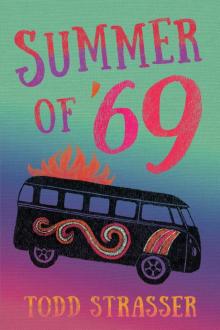 Summer of '69
Summer of '69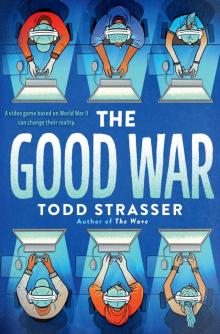 The Good War
The Good War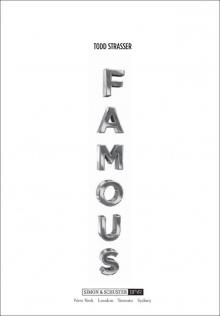 Famous
Famous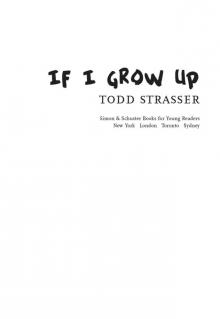 If I Grow Up
If I Grow Up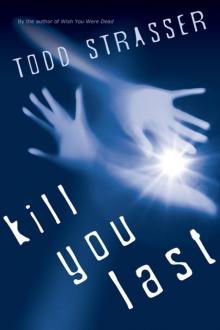 Kill You Last
Kill You Last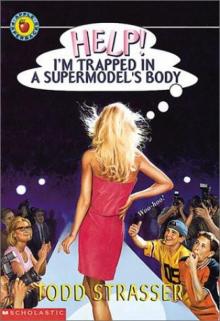 Help! I'm Trapped in a Supermodel's Body
Help! I'm Trapped in a Supermodel's Body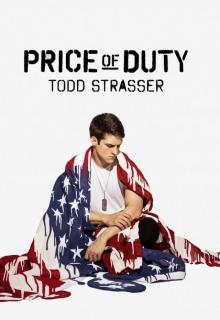 Price of Duty
Price of Duty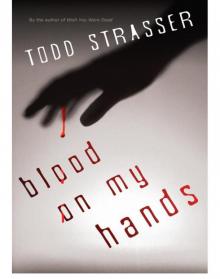 Blood on My Hands
Blood on My Hands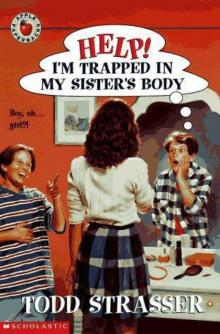 Help! I'm Trapped in My Sister's Body
Help! I'm Trapped in My Sister's Body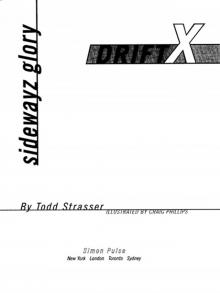 sidewayz glory
sidewayz glory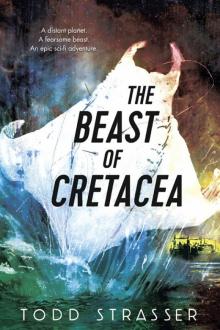 The Beast of Cretacea
The Beast of Cretacea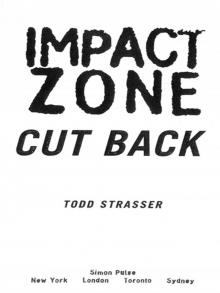 Cut Back
Cut Back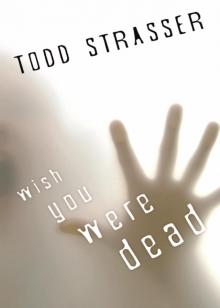 Wish You Were Dead
Wish You Were Dead The Wave
The Wave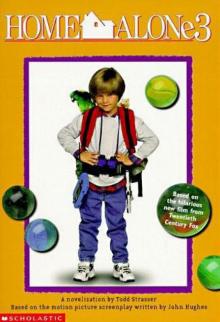 Home Alone 3
Home Alone 3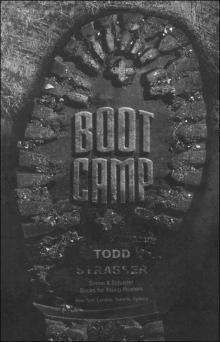 Boot Camp
Boot Camp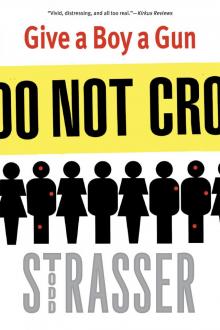 Give a Boy a Gun
Give a Boy a Gun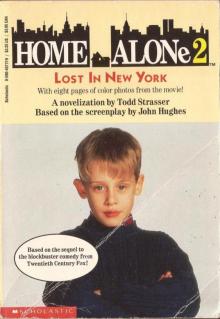 Home Alone 2
Home Alone 2 The Shore
The Shore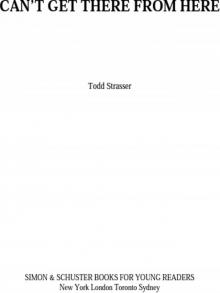 Can't Get There from Here
Can't Get There from Here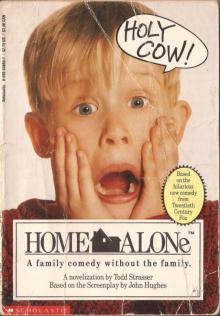 Home Alone
Home Alone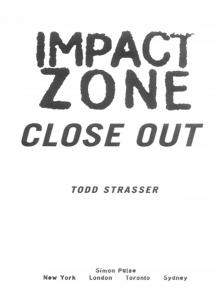 Close Out
Close Out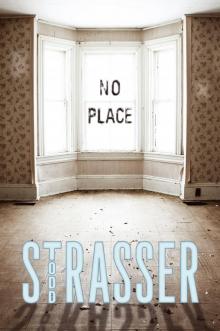 No Place
No Place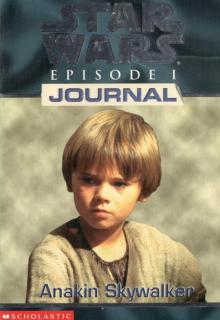 Star Wars - Episode I Journal - Anakin Skywalker
Star Wars - Episode I Journal - Anakin Skywalker